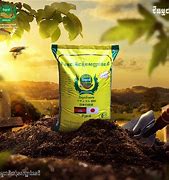Staff Reporter
Zimbabwe’s agricultural sector is facing a growing threat from fake seeds flooding the market, putting farmers’ livelihoods at risk.
The distribution of counterfeit seeds has led to poor harvests and financial loss for farmers who unknowingly purchase these substandard products.
Seed Co Zimbabwe, one of the country's leading seed suppliers, has confirmed the rising issue and is now actively working with the Zimbabwe Republic Police (ZRP) to investigate the criminal networks behind the illegal trade.
Director, Seed Co Zimbabwe, Felistus Ndahwi-Gurajena, shared the damaging impact of counterfeit seeds on both the company and the nation’s food security.
"These fake seeds are not just an inconvenience; they have the potential to devastate entire crops and ultimately, the livelihood of our farmers. We are working tirelessly with law enforcement agents to ensure that those responsible are held accountable.” said Gurajena.
Since 2020, Seed Co has recovered over 400 tonnes of fake seeds, a staggering figure that reflects the scale of the problem.
In the 2023/2024 season alone, 35 cases were reported, and the company has urged farmers to be more vigilant when purchasing seeds.
“Farmers must be cautious and ensure that they buy seeds only from certified dealers and our authorized retail outlets. We aim to ensure that every farmer has access to high-quality seeds within a 2-kilometre radius of their farms. The company is taking proactive steps to make certified seeds more accessible, with its retail network expanding to reach remote farming communities," added Gurajena.
While the immediate concern is the financial loss farmers face when purchasing fake seeds, the broader implications are even more worrying.
Gurajena added that counterfeit seeds undermine agricultural productivity, leading to poor yields, food insecurity, and a weakened economy.
"Counterfeit seeds affect everyone from large commercial farmers to small-scale producers. The damage is not just to our company but to the country's agricultural sector as a whole,” noted Gurajena.
In response to the menace, Seed Co is introducing new, improved seed varieties, including drought-tolerant maize, wheat, barley, soybeans, sugar beans, and small grains, designed to ensure that farmers can still rely on strong yields despite challenging climate conditions.
Despite the setbacks, Ndahwi-Gurajena remains optimistic that through continued vigilance, education, and cooperation with the police, the tide can be turned against counterfeiters.
"We are committed to ensuring farmers get the best quality seeds, and we won’t let these criminals erode the progress we have made in improving food security in Zimbabwe,” said Gurajena.
As the battle against fake seeds intensifies, Seed Co’s efforts underscore the importance of integrity in the agricultural supply chain and the need for continued vigilance to protect Zimbabwe’s farming future.




